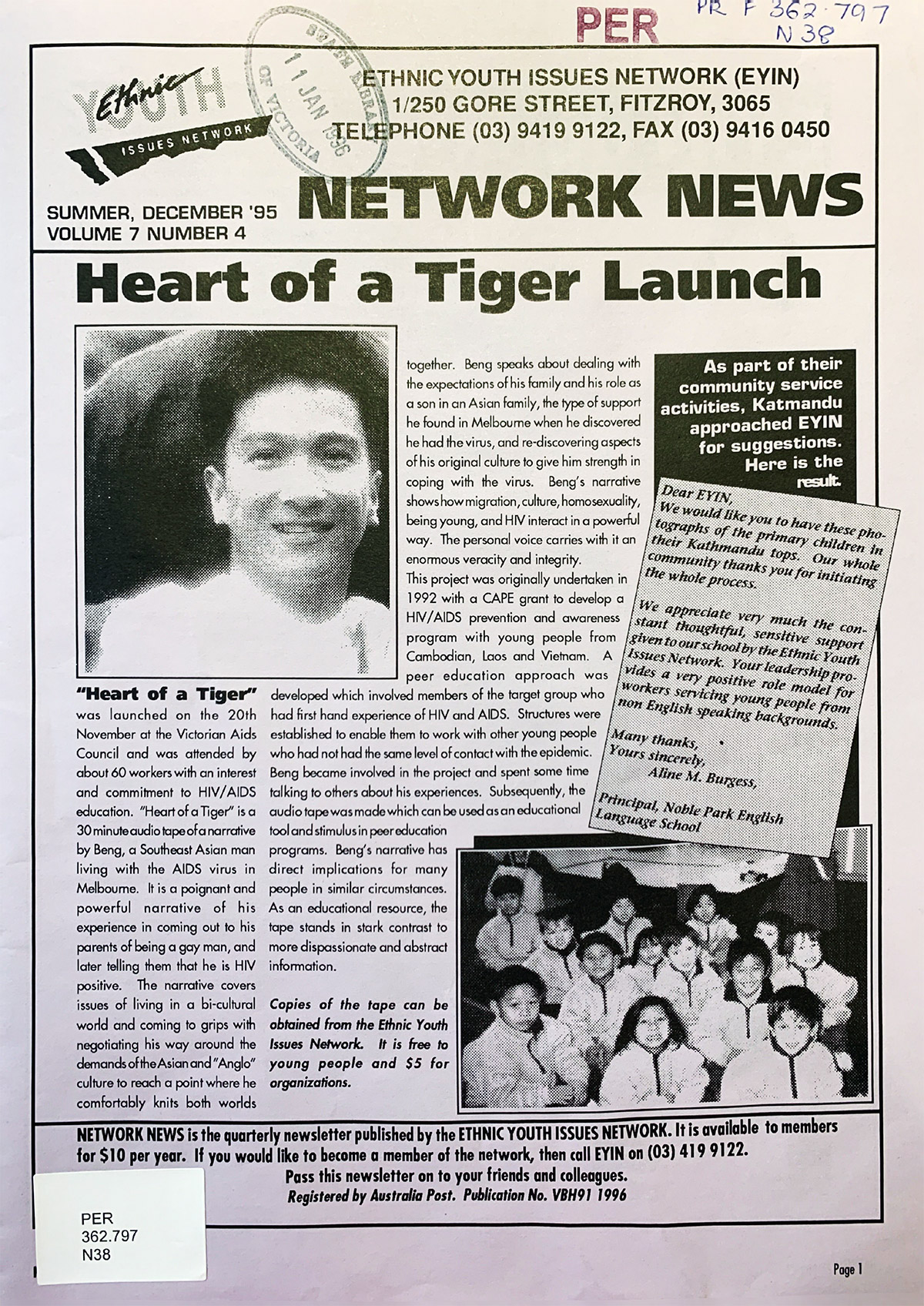Developing inclusive health promotion programs with South East Asian young men about HIV/AIDS and Intravenous Drug Taking.
In the early 1990s, the public health response to HIV/AIDS was still relatively young. While it had been effective in reducing HIV transmission which had peaked in Victoria in 1985, the public health response was widely regarded as world leading in its bipartisan approach and inclusion of members of the LGBTIQ+ community, however it was not reaching all members of Victoria’s multicultural community. It soon became clear to EYIN that their work in targeting Cambodian, Lao and Vietnamese young men needed to be extended to include other young men of South East Asian background.
The project involved working in a community development approach to provide health information and improve service access amongst networks of South East Asian young men through a peer support model. The project highlighted the prevalence of racism and discrimination experienced by these young men. They described experiences of dual discrimination, including homophobia from their cultural communities alongside racism within the gay community. This was layered with their experiences of racism and homophobia from the broader community. It highlighted the importance of a more tailored, culturally specific approach to the public health work about HIV/AIDS and safe injecting.
A further outcome of the project was the development of the ‘Heart of a Tiger’ educational cassette recording, launched at the Victorian Aids Council in November 1995. The ‘Heart of a Tiger’ was a recording of the autobiographical story of Beng a young, gay, man of Malaysian background living with HIV in Melbourne. Beng had become involved in the project and began speaking with groups before eventually creating the recoding to provide a resource that could be used in an education or peer support context.
Tragically, Beng passed away in 1997, however his legacy continued as ‘Heart of a Tiger’ was incorporated into a new educational kit launched in February 1998 by the Dean of the Faculty of Education, Language and Community Services at the Royal Melbourne Institute of Technology. ‘Sex, Living and Dying’ presented the cassette alongside information exploring cultural difference and ‘attitudes towards sexuality, disease, relationships, family, friends, life and death.’1 At the launch, the kit’s author, Amos Hee reflected on the power of personal narratives in creating understanding when he said ‘Beng’s story presents a mirror to our own lives and shows that there can be a range of understandings regarding sex, living and dying.’2
 Heart of a Tiger, launched at the Victorian Aids Council in November 1995
Heart of a Tiger, launched at the Victorian Aids Council in November 1995
1 Ethnic Youth Issues Network, (1998) ‘Sex, Living and Dying Cross Cultural Meanings & HIV/AIDS’, Network News, March 1998, Vol 10, No 1. p 3
2 Ethnic Youth Issues Network, (1998) ‘Sex, Living and Dying Cross Cultural Meanings & HIV/AIDS.’
Image credit: Ethnic Youth Issues Network, (1995) ‘Heart of a Tiger Launch’, Network News, Vol 7, No. 5, p1.
